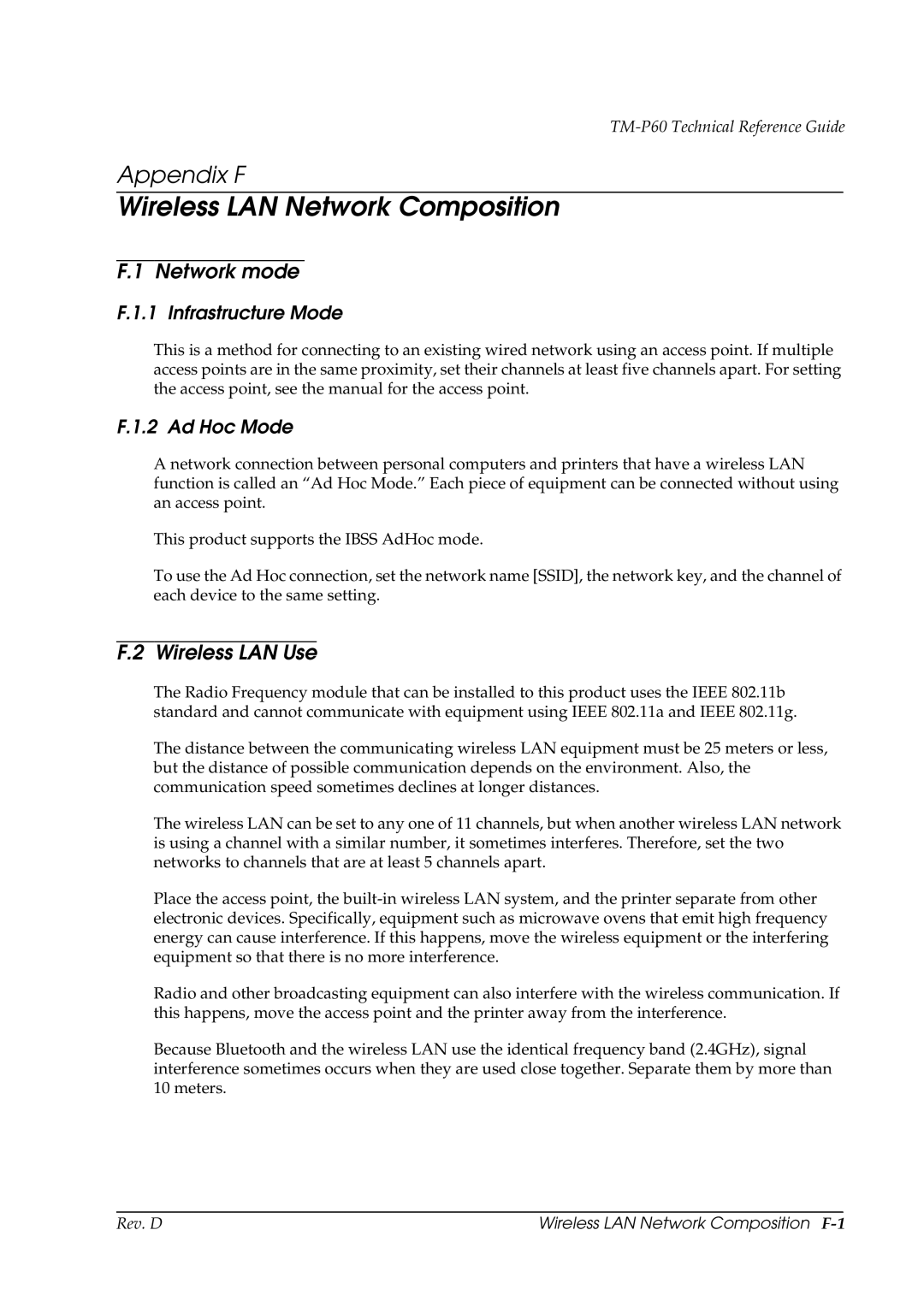
TM-P60 Technical Reference Guide
Appendix F
Wireless LAN Network Composition
F.1 Network mode
F.1.1 Infrastructure Mode
This is a method for connecting to an existing wired network using an access point. If multiple access points are in the same proximity, set their channels at least five channels apart. For setting the access point, see the manual for the access point.
F.1.2 Ad Hoc Mode
A network connection between personal computers and printers that have a wireless LAN function is called an “Ad Hoc Mode.” Each piece of equipment can be connected without using an access point.
This product supports the IBSS AdHoc mode.
To use the Ad Hoc connection, set the network name [SSID], the network key, and the channel of each device to the same setting.
F.2 Wireless LAN Use
The Radio Frequency module that can be installed to this product uses the IEEE 802.11b standard and cannot communicate with equipment using IEEE 802.11a and IEEE 802.11g.
The distance between the communicating wireless LAN equipment must be 25 meters or less, but the distance of possible communication depends on the environment. Also, the communication speed sometimes declines at longer distances.
The wireless LAN can be set to any one of 11 channels, but when another wireless LAN network is using a channel with a similar number, it sometimes interferes. Therefore, set the two networks to channels that are at least 5 channels apart.
Place the access point, the
Radio and other broadcasting equipment can also interfere with the wireless communication. If this happens, move the access point and the printer away from the interference.
Because Bluetooth and the wireless LAN use the identical frequency band (2.4GHz), signal interference sometimes occurs when they are used close together. Separate them by more than 10 meters.
Rev. D | Wireless LAN Network Composition |
